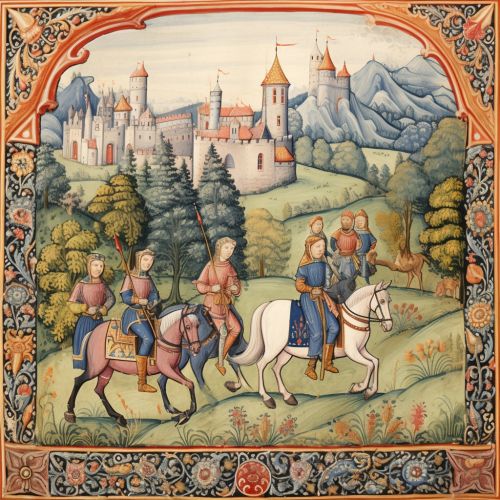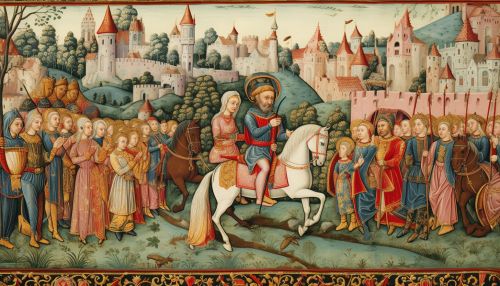Christianization of Poland
Introduction
The Christianization of Poland refers to the series of events in the 10th century that led to the acceptance of Christianity by the Polish people. This process was closely tied to the consolidation of the Polish state under the Piast dynasty.


Historical Background
Before the advent of Christianity, the Polish people practiced various forms of Slavic paganism. These belief systems were deeply rooted in the culture and traditions of the Slavic tribes that inhabited the region. The conversion to Christianity was a significant shift in religious and cultural practices, and it had profound implications for the political and social development of Poland.
The Conversion Process
The Christianization of Poland began in earnest with the reign of Mieszko I, the first historical ruler of Poland. Mieszko was baptized in 966 AD, an event that is often considered the founding date of the Polish state. His conversion was likely influenced by political considerations, as it helped to strengthen his rule and establish alliances with Christian powers in Europe.
Mieszko's conversion was followed by a broader process of Christianization among the Polish people. This process was not always smooth, and it was marked by periods of resistance and conflict. However, by the end of the 10th century, Christianity had become the dominant religion in Poland.
The Role of the Church
The Roman Catholic Church played a crucial role in the Christianization of Poland. The Church provided the institutional framework for the new religion, and it was instrumental in spreading Christian teachings and practices among the Polish people.
The establishment of the Archdiocese of Gniezno in 1000 AD was a significant milestone in the Christianization process. This event marked the formal recognition of the Polish Church by the Vatican, and it helped to consolidate the authority of the Church in Poland.
Impact on Polish Society
The Christianization of Poland had a profound impact on Polish society. It led to changes in religious practices, social norms, and cultural traditions. It also played a key role in the formation of the Polish state and the development of Polish identity.
The adoption of Christianity helped to integrate Poland into the broader Christian world. It facilitated political and cultural exchanges with other Christian powers, and it played a key role in the spread of Western culture and ideas in Poland.
Conclusion
The Christianization of Poland was a complex and multifaceted process that spanned several centuries. It was closely tied to the political and social developments of the time, and it had a profound impact on the history and culture of Poland. Today, Poland remains a predominantly Catholic country, and the legacy of its Christianization continues to shape its society and culture.
